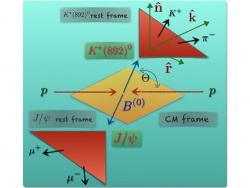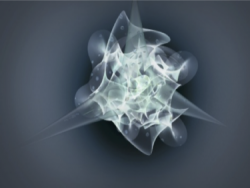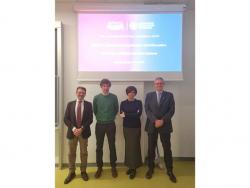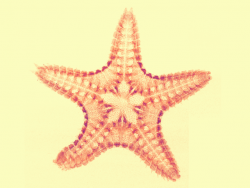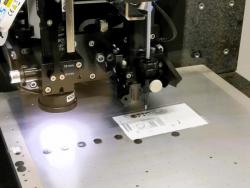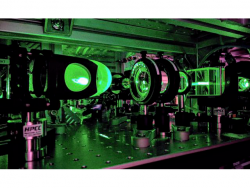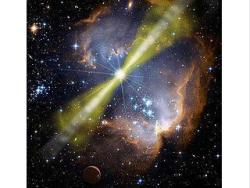- Home
- Department
- Research
- Teaching
- Post Graduate Studies
- Knowledge Transfer
- How To
Supercooled liquids and glasses
The theoretical description of the glass transition is one of the main open problems in condensed matter physics. Why does the viscosity of supercooled liquids increase dramatically by decreasing temperature? Why are some liquids good glass-formers and do not crystallize when supercooled, while others not? What is the origin of the strong dynamical correlations that characterize the motions of atoms and molecules close to the glass transition? To answer these questions, several theories have been developed but none of them provides yet a fully satisfactory and predictive description.
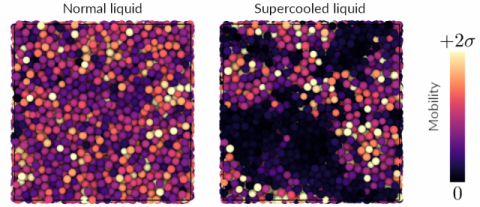
Molecular dynamics and Monte Carlo simulations are essential tools to understand the microscopic nature of condensed matter. Our research group focuses on classical simulation and optimization methods, and develops a Python framework to facilitate data analysis and the implementation of new algorithms. However, the time scales accessible to conventional simulations are too limited to study the dynamics of supercooled liquids close to the glass transition: even if we employ high performance computing (HPC) resources, simulating one second of the microscopic dynamics of a liquid would require several centuries of wall clock time.
One of our goals is to develop efficient simulation methods and fill the colossal gap between the time scales accessible to simulations and experiments. For instance, using the swap Monte Carlo method we accelerated the simulation of glassy colloidal suspensions by several billions of times and measured their structure and thermodynamics under extreme supercooling conditions. We also develop leight-weight but realistic force-fields to simulate supercooled liquids and glasses. We analyze their structure, dynamics and glass-forming ability using statistical physics and machine learning methods. In the long term, our efforts aim at identifying the correct theoretical description of the glass transition.
Info
Last update: 08-06-2025 - 12:38


